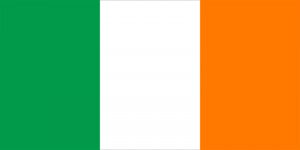Language/Irish/Vocabulary/Modes-of-Transportation
| ◀️ Comparative and Superlative — Previous Lesson | Next Lesson — Travel Vocabulary ▶️ |
Introduction[edit | edit source]
In this lesson, we will explore the Irish vocabulary related to different modes of transportation. Learning these words will not only enhance your ability to communicate about travel and transportation in Irish, but it will also provide you with valuable cultural insights into Ireland's history and modern-day transportation systems. By the end of this lesson, you will be able to confidently name and discuss various modes of transportation in Irish. Let's get started!
Modes of Transportation[edit | edit source]
Transportation is an essential part of our daily lives, allowing us to travel from one place to another. Whether it's a short commute or a long journey, knowing the Irish words for different modes of transportation will be incredibly useful. Let's begin by learning some common words for modes of transportation in Irish:
| Irish | Pronunciation | English Translation |
|---|---|---|
| gluaisteán | GLOO-ish-tawn | car |
| bus | buss | bus |
| traein | TRAIN | train |
| rothar | ROH-hur | bicycle |
| bosca poist | BOS-ka posht | mailbox |
| eitleán | EH-tlayn | airplane |
| long | lung | ship |
| capall | KAH-puhl | horse |
| tiomáint puc | tee-OH-mawnt pook | puck drive (horse-drawn cart) |
| maratón | mah-RAH-tawn | marathon |
| rothaíocht | ROH-hee-uhkht | cycling |
As you can see, there are various words for different modes of transportation in Irish. Some words, like "gluaisteán" (car) and "bus" (bus), are borrowed from English, while others, like "traein" (train) and "capall" (horse), have Irish origins. It's interesting to note the influence of both Irish and English on the vocabulary of transportation in Ireland.
Additional Modes of Transportation[edit | edit source]
In addition to the common modes of transportation mentioned above, there are several other modes worth exploring. Let's take a look at some more Irish words for different modes of transportation:
| Irish | Pronunciation | English Translation |
|---|---|---|
| carrchlós | KAR-khlohs | car park |
| sacar | SAK-ur | soccer |
| rothaíocht bhóthair | ROH-hee-uhkht WO-hir | road cycling |
| rothar leictreach | ROH-hur LEK-trukh | electric bicycle |
| transtóir | TRAN-stohr | commuter |
| troscán | TRUHS-kawn | truck |
| carrthrascairt | KAR-ras-kart | karting |
| bád | bawd | boat |
| rothar glas | ROH-hur glas | green bicycle (bike-sharing system) |
| tiomáint feirme | tee-OH-mawnt FER-muh | farm drive (tractor) |
These additional modes of transportation provide a more comprehensive understanding of the variety of ways people travel in Ireland. From road cycling to boat trips, there are many options to explore when it comes to getting around.
Cultural Insights[edit | edit source]
Transportation in Ireland has evolved significantly over the years, reflecting the country's changing needs and advancements in technology. In the past, modes of transportation were limited to horse-drawn carts and walking, but with the introduction of cars, buses, and trains, people gained greater mobility and accessibility. Today, Ireland has a well-developed transportation infrastructure that includes a network of roads, railways, airports, and ports. Public transportation, such as buses and trains, is widely available, making it convenient for both residents and tourists to travel within the country.
One interesting aspect of transportation in Ireland is the popularity of cycling. Cycling has become increasingly popular in recent years, with many cities and towns implementing bike-sharing systems and creating dedicated cycling lanes. This emphasis on cycling not only promotes a healthier lifestyle but also helps reduce traffic congestion and carbon emissions. In cities like Dublin and Cork, you will often see people using green bicycles, known as "rothar glas," which are part of the bike-sharing system.
Another cultural aspect to consider is the importance of the horse in Irish history and tradition. Horses have long been a symbol of Irish heritage, and equestrian activities such as horse racing and showjumping are highly regarded. In rural areas, horses are still used for farming and transportation purposes, preserving a connection to Ireland's agricultural roots.
Practice Exercises[edit | edit source]
Now that you have learned the Irish words for different modes of transportation, let's practice using them in context. Try to complete the following exercises by filling in the blanks with the appropriate Irish words:
1. I'm going to take the __________ to work today. 2. My favorite mode of transportation is __________. 3. She enjoys __________ along the coast. 4. We need to find a __________ for our car. 5. The __________ arrived at the station on time.
Solutions: 1. I'm going to take the bus to work today. 2. My favorite mode of transportation is cycling. 3. She enjoys cycling along the coast. 4. We need to find a car park for our car. 5. The train arrived at the station on time.
By practicing these exercises, you will become more comfortable using the Irish words for modes of transportation in real-life situations.
Conclusion[edit | edit source]
Congratulations! You have successfully learned the Irish vocabulary for different modes of transportation. This knowledge will greatly contribute to your ability to discuss travel and transportation in Irish. As you continue your language learning journey, remember to explore the cultural aspects associated with transportation in Ireland, such as the popularity of cycling and the historical significance of the horse. Keep practicing and applying your new vocabulary, and soon you'll be confidently navigating the roads, railways, and skies of Ireland. Slán go fóill! (Goodbye for now!)
Sources[edit | edit source]
Other Lessons[edit | edit source]
- How to say Good Bye?
- Games and Toys
- Days of the week
- Geometric shapes
- Travel Vocabulary
- Sports
- At the post office
- Education
- Express Surprise
| ◀️ Comparative and Superlative — Previous Lesson | Next Lesson — Travel Vocabulary ▶️ |

